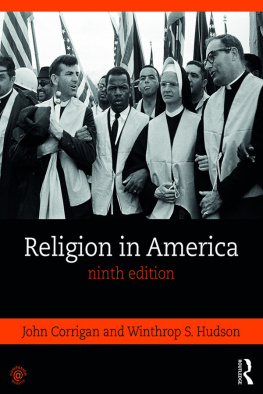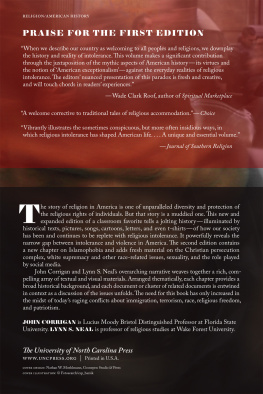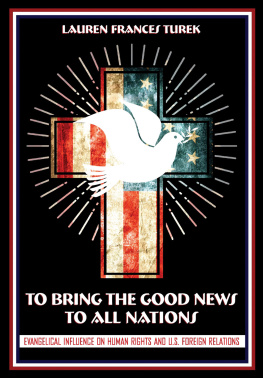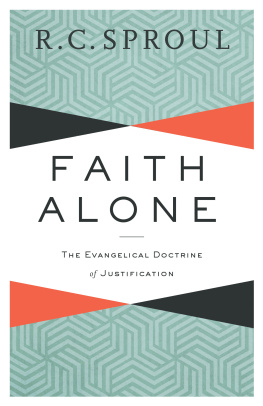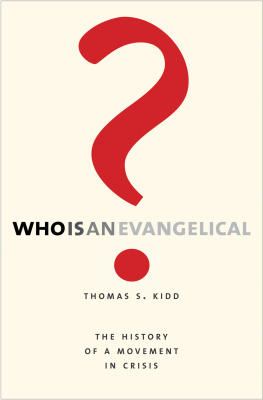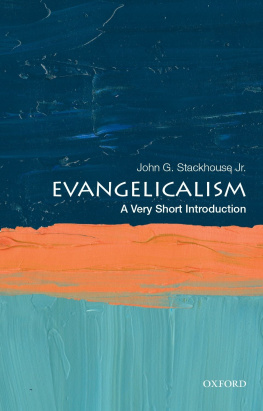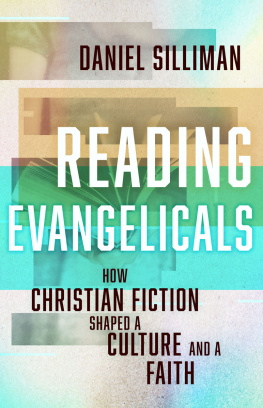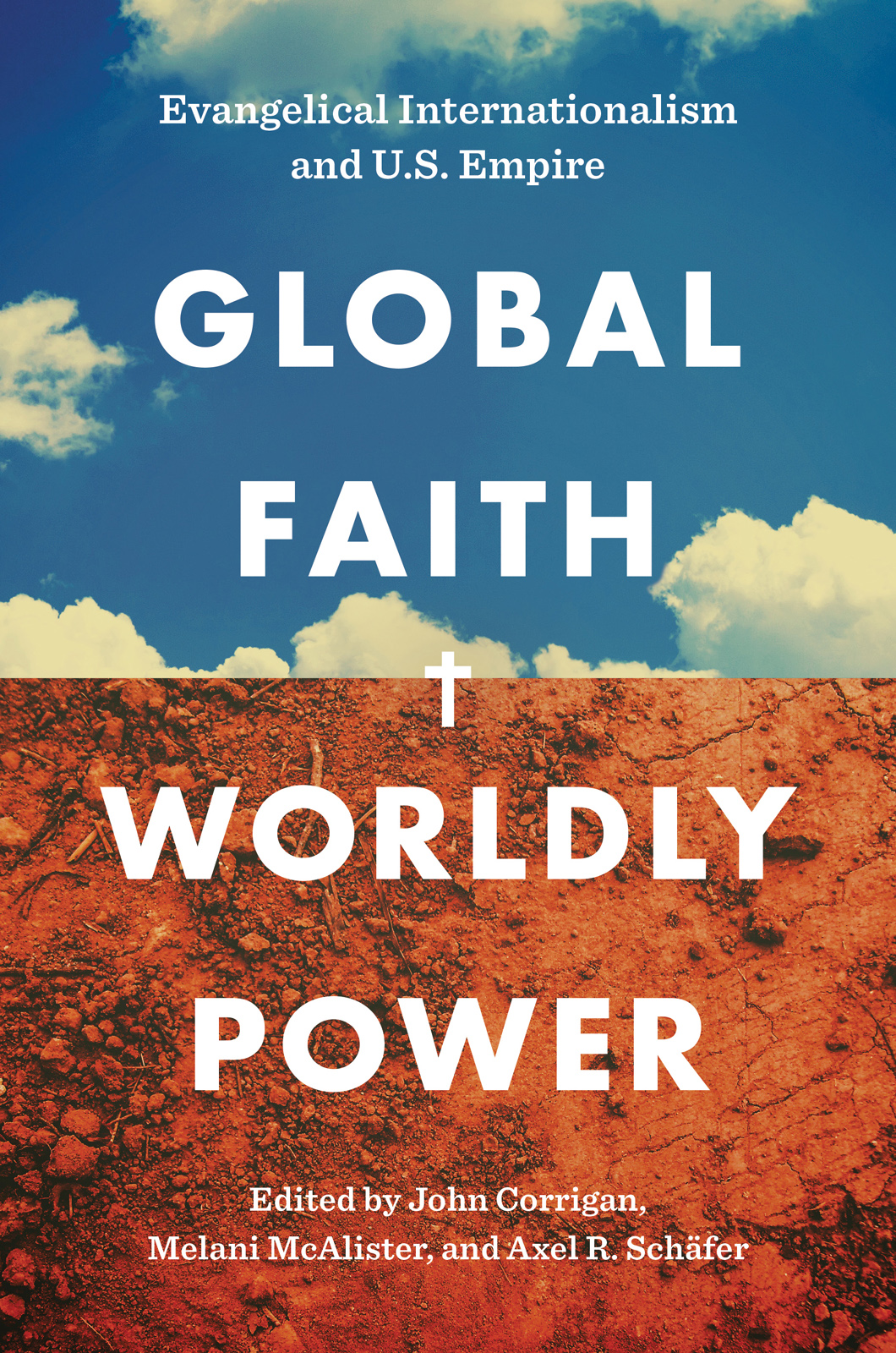INTRODUCTION
U.S. Evangelical Ambitions in Transnational Context
Melani McAlister, Axel R. Schfer, and John Corrigan
Evangelicals, empire, and power. Theologically conservative Protestants in the United States have encountered the world, mobilizedand sometimes challengedthe U.S. state, and positioned themselves in times of international crisis. This book takes as its starting point the grand American evangelical venture to convert the world, but it moves from that missionary presumption to examine how biblical imperatives have intersected with worldly imaginaries. We focus on U.S. evangelicalsa group that many observers, out of long habit, assume to have little or no investment in the world beyond their borders. Our aim is to counter that assumption: both to explore the complex ways that theologically conservative Protestantism has mattered on the international stage and to show how global realities have refashioned the experience of U.S. evangelicals.
We include evangelicals across lines of race here: white and Black, Asian and Latinx. While these groups often differ significantly in their politics, they are involved in overlapping networks, connect across denominations, listen to some of the same famous preachers, and navigate similar, if far from identical, questions about the intersections of faith and politics. The project is attentive to the racial and ethnic diversity of a movement in which race remains a central tension. It also examines how the globalization of the faithlong a goal of the missionary imperativehas had a boomerang impact, reshaping U.S. evangelical life.
We further explore how these diverse evangelicals have engaged various regions of the world: Latin America, the Caribbean, Asia, Africa, and Europe. To make possible this kind of expansive reach, we brought together some of the worlds finest scholars of U.S. evangelicalism in its global context. Contributors include historians of U.S. religion, Latin Americanists, scholars of Middle East studies, Africanists, Caribbean historians, and specialists in Europe. In the last ten years, there has been an explosion of work that brings evangelicals into full view as transnational political actors, showing their impact on debates about humanitarianism and human rights, religious freedom, gender and sexuality, and U.S. foreign policy, among other topics. Much of that scholarship was written by the contributors to this volume. In conversation with each other, we are able to provide a geographic reach and a depth of understanding that a single individual simply could not.
Our argument here is not that evangelicals, of any race, are not politically conservative, nationalist, or solipsistic. While it is certainly true that there are liberal and even radical evangelicals in the United States and globally, across a number range of demographic lines, the point of this collection is not a recuperative one. It is instead a call for us to examine and understand the complex ways that evangelical forms of practice and power work and how much they exist withinand help to constructa cultural and political universe of border-crossing, media-blended, and institutional and political diversity. Any such project must also reckon with the realities of U.S. state and non-state forms of power within evangelicalism.
U.S. Evangelicals Are Global
At the turn of the twenty-first century, a range of evangelical activists and journalistic observers began to note the seemingly new enthusiasm of American evangelical churches for political and humanitarian causes in the Global South. In 2002, New York Times columnist Nicholas Kristof touted American evangelicals as the new internationalists, citing their interest in global poverty and funding for AIDS programs overseas. Whether in the form of Kristofs warm embrace or as an angry outpouring at perceived hypocrisy, many of these recent observations about evangelical investments seemed to imply that, for better or worse, theologically conservative Christians had moved, at last, onto the global stage.
This approach to understanding evangelicalism, however, is based on a misreading of the movements far longer and more complicated globalizing history. From the colonial period to the Civil War, theologically conservative Protestants were deeply invested in missionary work, national expansion and Indian removal, debates over slavery, and various forms of humanitarianism that crossed colonial or national lines. Their border-crossing investments only increased over time. In the 1890s, Christians of all stripes organized on behalf of Armenian Christians in the Ottoman Empire, offering not only humanitarian donations but also political commentary aimed against the infidel Turks. The issue of decolonization, however, often put Black and white evangelicals at odds, with African Methodist Episcopal and other Black churches strongly supporting African nationalism, while white evangelicals typically held a distinctly more ambivalent stance.
Despite the global cultural, racial, and theological complexity that has long shaped evangelicalism, two generations of scholarship, starting in the 1980s, focused primarily on the domestic politics of the religious right, with white evangelicals at its heart.
Afterward, according to this account, fundamentalists retreated into pietism and political quietude, waiting out two world wars and the Depression with little to say about politics of any sort. After World War II, a younger cohort tried to wrench control of the narrative, styling themselves neo-evangelicals. They developed new, more savvy institutions, founding the National Association of Evangelicals in 1942, Fuller Theological Seminary in 1947, and Christianity Today in 1956. At the same time, most of them remained firmly traditional in theology and generally conservative in their politics. They sought to create a broad interdenominational evangelical base and to dispense with the gloom and doom of prewar fundamentalism. (Even the name neo-evangelicals, only partially adopted, distinguished them from the stricter and more separatist fundamentalists of a previous generation.) Their focus on foreign missions, religious broadcasting, Christian schools, the military chaplaincy, and church-state issues gave a new boost to this-worldly evangelical social and political action. They also recognized that evangelicalism was not confined to the geographical backwaters of small towns and rural constituencies and in fact was present in strength in urban areas, where its membership numbered white-collar workers and an emerging entrepreneurial class.


